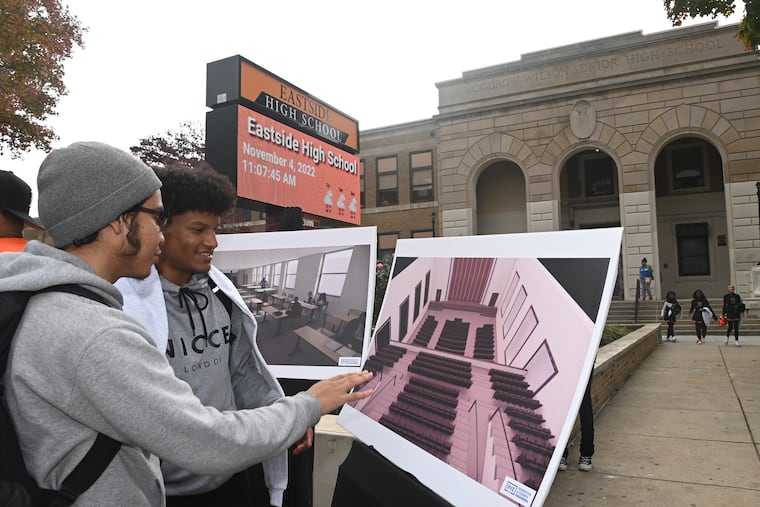N.J. retreats from controversial plan to eliminate school-based mental health programs
Currently, New Jersey annually serves 25,000 to 30,000 of 1.4 million students in 63 districts, including Camden.

After backlash from educators and mental health advocates, New Jersey has backed down — for now — from a plan to eliminate school-based youth services programs that provide counseling to thousands of students in 63 districts, including Camden.
The state Department of Children and Families, however, announced Wednesday it would still proceed with a plan to offer additional counseling and other services through newly created regional hubs. It said the school-based programs at 86 schools would be maintained for at least another year through 2024.
School officials and lawmakers who urged the state to reconsider the proposal known as the NJ Statewide Student Support Services, or the NJ4S network, called the decision a partial victory. Many had feared the school-based programs would be dismantled at the end of the 2022-23 school year.
» READ MORE: Plan to replace N.J. school-based mental health programs with regional hubs comes under attack from districts
“It’s a step in the right direction,” Millville School Superintendent Tony Trongone said Thursday. “But the jury is still out. The details are coming out very slowly.”
In the announcement, the state said the decision came after weeks of comments from the public and stakeholders. It said that keeping the existing school-based programs would minimize disruptions for students already receiving services.
Besides Millville and Camden’s Eastside High and Camden High, other South Jersey schools that currently have school-based youth services include Willingboro High School, Pemberton Township High School, Clayton Middle School, Gloucester County Institute of Technology in Deptford, Bridgeton High School, and Penns Grove High School.
The state said it would roll out a request for proposals, or RFPs, in the coming weeks for the new program that would take a more regional approach to mental health services. The state wants to create hubs in the NJ4S network, near the state’s 15 court districts, by June 30, 2023. There would be a “hub and spoke” model staffed with prevention specialists and mental health counselors.
“As a firm believer in the importance of addressing the mental health needs of our youth, I understand just how essential it is to provide young people with the support they need during these challenging times,” Gov. Phil Murphy said in a statement.
» READ MORE: Young people are in mental health crisis and New Jersey needs a plan to help
At a time when youth mental health has been declared a crisis, the state has said the regional approach would allow it to reach all of New Jersey’s 1.4 million public school students. Services would be provided to students in schools and trusted sites, such as libraries and community centers.
The current school-based youth services program, started in 1988, annually serves 25,000 to 30,000 students and costs about $32 million, according to the state. But there are about 2,400 schools in New Jersey that don’t have school-based youth services in their buildings, and the state said it could not afford to implement them.
Trongone and others say the conveniently located programs, such as the LINK based at Millville High School, have provided a safe environment where students can seek help from counselors they feel comfortable approaching. His district has had a program for 17 years.
Besides mental health services, the programs provide health and wellness services for students and their families, help with substance-abuse problems, job-search initiatives, and recreation offerings. School officials say students can get help in real time with an intervention that would likely allow them to remain in school.
Lawmakers on both sides of the aisle have praised the school-based programs and pushed back against changing them. School psychologists have said the programs are the most effective and timely way to reach students, especially those in underserved communities.
In a joint statement, the Legislative Black Caucus and Latino Caucus commended Murphy’s decision to extend the programs. It was unclear what would happen after 2024. Many districts have said they cannot afford to fund them without state assistance.
“It was alarming to learn of the potential dismantling of life-saving programs ... [that] provide students with safe spaces; settings where they are comfortable and have built trusted relationships,” the caucuses said.